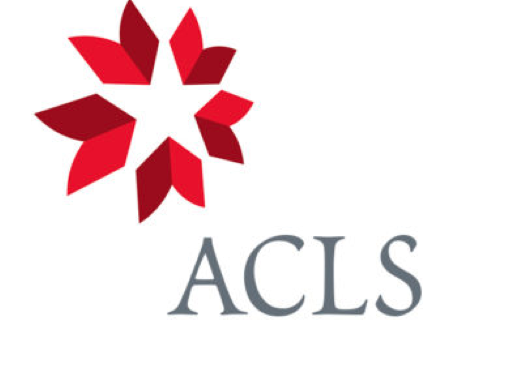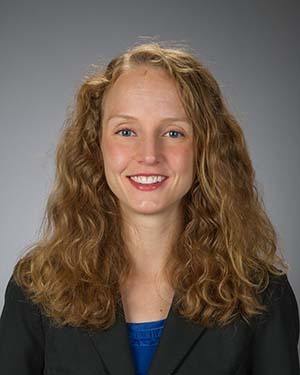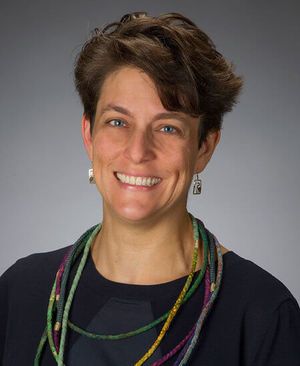
Three gender studies faculty members have recently been awarded fellowships by the American Council of Learned Societies (ACLS).
Katie Jarvis and Emily Remus, both assistant professors of history, were among 81 fellows named from more than 1,100 applicants in the 2019 award cycle. And Sarah McKibben, an associate professor of Irish language and literature, was one of 78 to receive a 2018 fellowship.
ACLS awardees are selected for excellence in the humanities and humanistic social sciences, and the fellowships support six to 12 months of full-time research and writing.
Democratizing forgiveness

Katie Jarvis
Historian Katie Jarvis is an expert in the French Revolution, and her newest research, as described in her proposal, is the first book-length project to argue that resolving conflict itself can be revolutionary.
Jarvis’s ACLS-awarded Democratizing Forgiveness investigates the ways in which the French revolutionaries refashioned forgiveness from 1789 to 1802.
“Amid conflict,” she argues, “the French Revolution forged modern politics and society by reinventing reconciliation, and instead of depicting reconciliation as the revolution’s dénouement, I want to reframe forgiveness as the main plot and spotlight its development.”
For Jarvis, this means moving beyond a historical focus on trauma, including the French Revolution’s scenes of the Paris guillotine with irrevocable sentences carried out on citizens whose crimes were deemed irreconcilable. Jarvis tells a second tale in the same city, and just around the corner from the guillotine:
Citizen Brou and Citizen Descotes appeared before a revolutionary court to a much different end. They were attempting to reconcile their differences. Brou had loaned Descotes a horse, which the latter had “unhappily lost.” Now, both citizens hoped that their locally elected Justice of the Peace, a new revolutionary arbitrator, could mediate a resolution. Brou proposed an indemnity for the mare, which Descotes found just and countered by requesting a repayment plan. Brou consented and the two resolved their dispute without a civil suit.
“Historians of revolutions have paid far more attention to the scenes of conflict, like those at the foot of the guillotine, than to scenes of commonplace reconciliation, like that between Brou and Descotes,” said Jarvis. “This scholarly silence starkly contrasts with the growing interdisciplinary interest in local forgiveness, which has emerged as an urgent issue in the wake of modern wars and genocide.”
With ACLS funding, Jarvis will undertake research in France.
“During my fellowship year, I look forward to writing two chapters from my manuscript and to completing research for two others,” Jarvis said. “The fellowship will also support a crucial trip to Paris where I will work in the Archives nationales, the Archives de Paris and the Bibliothèque nationale de France.”
Jarvis drew inspiration for her research from work on a previous book, Politics in the Marketplace: Work, Gender, and Citizenship in Revolutionary France, where she found many instances of everyday citizens using the revolutionary language of “liberty, equality and fraternity” to petition local justices of the peace in various civil cases.
“When we think of revolutions, we often think of moments of great rupture, but new systems of quotidian reconciliation can themselves transform politics and society,” Jarvis said. “In short, forgiveness can be both a brake on conflict and a motor for change.”
Crediting women

Emily Remus
The United States economy runs on consumer credit, and historian Emily Remus studies the gendered aspects of this financial history. Until the late 19th century, credit was almost exclusively for men; by the late 1920s, women were its majority users.
While there is a wide literature on consumer credit’s ascent in the American mainstream after World War I, Remus points out that few have investigated how women fueled its growth, or what impact this shift had on women’s autonomy, economic citizenship and the American financial sector more broadly.
Her ACLS fellowship will support research for her forthcoming book, Charge It: Women, Credit and the Making of Modern America.
Charge It will address a fundamental riddle, according to Remus: “If, as Daniel Webster famously suggested, credit is defined by man’s confidence in man, how did the incorporation of women affect its meaning and practice?”
She will explore how women were courted, educated and integrated into credit relations; how they used and understood credit; and how their new credit practices shaped American commerce and culture in the late 19th and 20th centuries.
Among other aspects of Remus’ research is a focus on the ways women’s forays into the financial realm ran afoul of notions of respectable womanhood. “There was widespread cultural opposition to women handling currency, which was often viewed as crass and unfeminine,” she said. “My work uncovers the attempts of department stores to promote sales by relieving women of the need to sully their hands with filthy lucre by utilizing new payment devices, such as pneumatic cash tubes, identification badges and, ultimately, charge cards.”
Upon receiving news of her ACLS fellowship, Remus said, “I am thrilled to receive support from ACLS, not only because it will facilitate my research and writing at a crucial stage in the process, but also because it affirms that other scholars see the importance of the questions I’m trying to answer about women and their financial autonomy.”
Remus became interested in her new project while researching for her first book on women’s consumer practices. “I kept bumping into questions of credit and money,” she said. “I realized that within a very short time frame, women went from being largely excluded from credit relations to being the dominant users of consumer credit.”
That first book, A Shoppers’ Paradise: How the Ladies of Chicago Claimed Power and Pleasure in the New Downtown, was released in April 2019 and examines how women in turn-of-the-century Chicago used their consumer power to challenge male domination of public spaces.
Transforming tradition

Sarah McKibben
Sarah McKibben, who is also a faculty fellow in the Keough-Naughton Institute for Irish Studies, focuses her scholarship on bardic poetry in Ireland during the 16th and 17th centuries.
Her ACLS fellowship is allowing her to conduct research for her book project, Tradition Transformed: Bardic Poetry and Patronage in Early Modern Ireland, c. 1560-1660.
During that time, Irish poets composed compelling artistic expressions of praise and warning — as well as satire — in the face of an antagonistic, expanding Tudor-Stuart state.
“I am grateful to the ACLS for recognizing and supporting my work,” McKibben said. “This fellowship enables me to devote concentrated time to exploring this fascinating poetic archive. I find it compelling that bardic poets are conservative subversives — at once proclaiming the value of tradition and finding ways to transform that tradition in the face of epochal change. They offer an early modern vindication of how the written and spoken word can supply insight and inspiration amidst troubled times.
“We can look to them as exemplars in both the use of art, praise, and satire as political weapons, and the age-old human struggle to navigate perilous social change.”
As early as Henry VIII’s Act for the English Order, Habite and Language (1537), English authority sought to assert complete control over the only partially conquered adjacent island and to thoroughly Anglicize it. Subsequent English efforts prompted a complex response by Ireland’s population ranging from repeated rebellions to various forms of accommodation in the face of the extension of martial law, attacks on the Catholic faith, and a concerted effort to cast aside traditional Irish practices.
Yet, as McKibben demonstrated in her earlier book, Endangered Masculinities in Irish Poetry, 1540-1780 (University College Dublin Press, 2010), as guardians of culture and nobility, bardic poets were not afraid to give voice to insurgent words and actions against the crown, even as they sought to negotiate with the complex political reality of the day.
For her new book, McKibben will advance the critical reading of the Irish bardic poetry she began with the first.
“Whether urging a patron to defend them ‘ar smacht ríogh’ (‘against the king’s rule’), warning him not to be ‘meallta’ (‘wooed’) by English tricks, or comically threatening him with ‘sreath iolfháobhair raghlain rann’ (‘many bright blades of eulogistic quatrains’), Irish bardic poets testify to the richness of the poetic tradition in confronting change,” McKibben said. “Bardic professional poets are particularly pointed in lamenting the collapse of social norms—as exemplified by their complaint about violence as ‘dár ttír ag déanamh fásaigh’ (‘making a wilderness of our country’) or inveighing against ‘dlígheadh is fhiú aindligheadh’ (‘[English] law that is mere unlawfulness’).